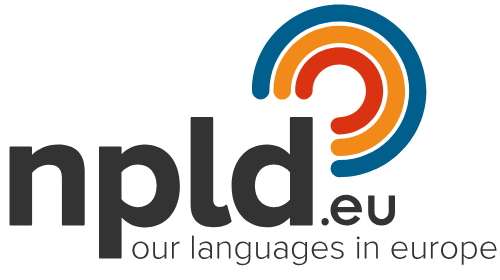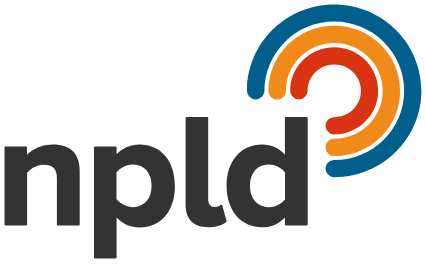
Resources on Linguistic Diversity in Europe
The following is a list of selected documents and organisations dealing with linguistic diversity at EU level:
[Scroll down to see the list of selected organisations]
DOCUMENTS
European Charter for Regional or Minority Languages
The Charter is designed as a tool of the Council of Europe to protect and promote regional and minority languages and to enable speakers to use them both in private and public life. It therefore obliges the States Parties to actively promote the use of these languages in education, courts, administration, media, culture, economic and social life, and cross-border co-operation. The Charter, currently ratified by 25 States, was adopted as a convention on 25 June 1992 by the Committee of Ministers of the Council of Europe, and was opened for signature in Strasbourg on 5 November 1992. It entered into force on 1 March 1998.
Educational Linguistic Models
Linguistic models of application in the field of education in the territories of NPLD members’ languages: Alsace-Moselle, Balearic Islands, Basque Country, Bernstol (Province of Trento), Brittany, Catalonia, Corsica, Fassa Valley (Province of Trento), Finland, Friesland, Friuli, Galicia, Ireland, Luserna (Province of Trento), Navarre, Occitanie, Pomerania, Romania, Scotland, Sweden, Valencia and Wales.
European Roadmap to Promote Linguistic Diversity
Launched in 2015 to propose a new approach on languages as part of the European Agenda 2020, the Roadmap is an initiative promoted by NPLD which aims to reaffirm the European Union’s commitment to linguistic diversity and to ensure that all the languages spoken in Europe are seen as common assets which need to be supported, promoted and protected. The Roadmap is also available in its Catalan, Basque, French, Friulian and Spanish versions.
As a result of the evaluation of the Roadmap is undertaken in 2019, a position paper and an 2019-20 Action Plan were released.
White Paper on Linguistic Diversity
Published in 2016 as the final product of the EU-funded LEARNMe project (2012-16), the White Paper on Linguistic Diversity aims to provide policy guidelines and recommendations for policy stakeholders in the field as well as for practitioners. These guidelines and recommendations are meant to provide a very practical outline of how multilingual needs of less used languages can be approached. The Paper can be read in a full and an abridged edition.
Euromosaic
This is a research project started by the European Commission in 1992-93 to address the lack of available data on the actual situation of minority languages in the European Union. The first publication, Euromosaic. Production and reproduction of minority linguistic groups within of the EU, was released in 1996 and it compiled the linguistic situation in the EU-12 countries. The first report was progressively followed by new editions in 1999, Euromosaic III in 2004 and 2009 to include the new European member States’ linguistic frameworks.
Report on endangered European languages and linguistic diversity in the European Union
In 2013 a Report on endangered European languages and linguistic diversity in the EU was presented by Corsican MEP François Alfonsi to call for a joint effort between the European Commission and the members States to protect and promote linguistic diversity in Europe. The Report was presented to the EP plenary in June 2013 and unanimously approved by the Committee on Culture and Education of the EP.
ORGANISATIONS
Coppieters Foundation
Coppieters Foundation is a think tank focusing on European affairs based in Brussels. It develops new ideas and produces knowledge on the management of cultural and linguistic diversity, collective and minority rights, multi-level governance, among other international affairs. NPLD and CF have closely worked in several occasions on projects related to linguistic diversity.
European Civil Society Platform for Multilingualism (ECSPM)
The NPLD is a member of the European Civil Society Platform for Multilingualism, an association composed by different European organisations, foundations and NGOs working in the field of language promotion created at the request of the European Commission. ECSPM and its members are especially strong in the field of Education.
European Language Equality Network (ELEN)
Based in Brussels, ELEN‘s goal is the promotion and protection of European lesser-used languages, to work towards linguistic equality for these languages, and multilingualism, under the broader framework of human rights, and to be a voice for the speakers of these languages at the local, regional, national, European and international level. It was established in 2011 based on the former European Bureau for Lesser Used Languages’ (EBLUL) member-state committees, Eurolang, plus many umbrella and individual language NGOs from most EU member states.
European Union National Institutes for Culture (EUNIC)
EUNIC is an international organization for culture and cultural diplomacy, which office in Brussels is particularly active in terms of promoting Languages and Culture. NPLD has collaborated with EUNIC on occasion of the celebration of the European Day of the Languages and the Transpoesie Festival.
Federal Union of European Nationalities (FUEN)
FUEN is the European umbrella organisation of the autochthonous, national minorities and ethnic groups in Europe. With around 100 members organizations altogether, FUEN is one of the leading organisations in Europe when it comes to the promotion of minority languages. FUEN is the promoter of the Minority Safepack Initiative, an ambitious initiative that gathered more than a million signatures by individuals and organisations from all over Europe in 2018 to present a package of law proposals for the safety of the national minorities to the European Institutions, a set of EU legal acts that enable the promotion of minority rights, language rights, and the protection of their cultures.
Mercator Research Centre
Mercator, a leading research centre hosted by the Fryske Akademy in Ljouwert/Leeuwarden, researches multilingual education and language learning in Europe. Mercator offers a complete newsletter, seminars, conferences, papers and a set of various outcomes addressing linguistic diversity issues not only in Fryslân but all throughout Europe.
